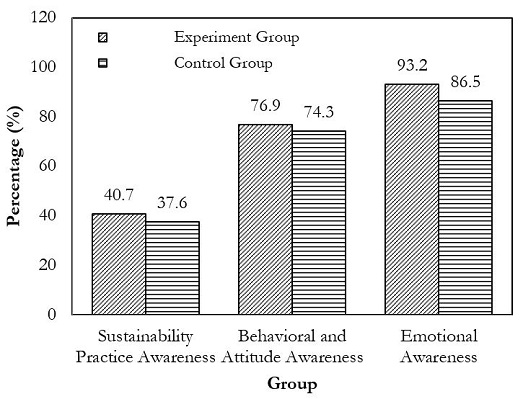
Improving Students’ Sustainability Awareness through Argument-driven Inquiry
Abstract
Full Text:
Download PDFReferences
Aulia, E. V., Poedjiastoeti, S., & Agustini, R. (2018). The Effectiveness of Guided Inquiry-based Learning Material on Students’ Science Literacy Skills. Journal of Physics: Conference Series, 947(1), 012049.
Cetin, P. S., & Eymur, G. (2017). Developing Students’ Scientific Writing and Presentation Skills through Argument-Driven Inquiry: An Exploratory Study. Journal of Chemical Education, 94(7), 837–843.
Cottrell, S. P., & Graefe, A. R. (1997). Testing a conceptual framework of responsible environmental behavior. The Journal of Environmental Education, 29(1), 17-27.
Creswell, J. W. (2012). Educational Research: Planning, Conducting and Evaluating Quantitative and Qualitative Research (Fourth Edi). Lincoln, Nebraska: Pearson.
Demircioglu, T., & Ucar, S. (2015). Investigating the effect of argument-driven inquiry in laboratory instruction. Kuram ve Uygulamada Egitim Bilimleri, 15(1), 267–283.
Fraenkel, J. R., Wallen, N. E., & Hyun, H. H. (2012). How To Design and Evaluate Research in Education (Eight Edit). New York: McGraw-Hill.
Hamid, S., Ijab, M. T., Sulaiman, H., Md. Anwar, R., & Norman, A. A. (2017). Social media for environmental sustainability awareness in higher education. International Journal of Sustainability in Higher Education, 18(4), 474–491.
Hasnunidah, N., Susilo, H., Irawati, M. H., & Sutomo, H. (2015). Argument-Driven Inquiry with Scaffolding as the Development Strategies of Argumentation and Critical Thinking Skills of Students in Lampung, Indonesia. American Journal of Educational Research, 3(9), 1185-1192.
Hassan, A., Noordin, T. A., & Sulaiman, S. (2010). The status on the level of environmental awareness in the concept of sustainable development amongst secondary school students. Procedia - Social and Behavioral Sciences, 2(2), 1276–1280.
Hassan, A., Rahman, N. A., & Abdullah, S. I. S. S. (2011). The level of environmental knowledge, awareness, attitudes and practices among UKM students. https://doi.org/10.1016/j.foodcont.2013.09.036.
Hodson, D. (2009) Teaching and Learning about Science: Language, Theories, Methods, History, Traditions, and Values. Canada: Sense Publisher.
Labog, R. A. (2017). Teachers’ Integration of Environmental Awareness and Sustainable Development Practices. Asia Pacific Journal of Multidisciplinary Research, 5(3), 102–110.
Pauw, J. B. D., Gericke, N., Olsson, D., & Berglund, T. (2015). The effectiveness of education for sustainable development. Sustainability, 7(11), 15693-15717.
Sammalisto, K., Sundström, A., von Haartman, R., Holm, T., & Yao, Z. (2016). Learning about Sustainability—What Influences Students’ Self-Perceived Sustainability Actions after Undergraduate Education?. Sustainability, 8(6), 510.
Sivamoorthy, M., Nalini, R., & Kumar, C. S. (2013). Environmental Awareness and Practices among College Students. International Journal of Humanities and Social Science Invention, 2(8), 11–15.
Walker, J. P., Sampson, V., Southerland, S., & Enderle, P. J. (2016). Using the laboratory to engage all students in science practices. Chemistry Education Research and Practice, 17(4), 1098–1113.
Wardani, T. B., & Winarno, N. (2017). Using Inquiry-based Laboratory Activities in Lights and Optics Topic to Improve Students' Understanding About Nature of Science (NOS). Journal of Science Learning, 1(1), 28-35.
DOI: https://doi.org/10.17509/jsl.v2i2.13104
Refbacks
- There are currently no refbacks.
Copyright (c) 2019 Authors

This work is licensed under a Creative Commons Attribution-ShareAlike 4.0 International License.


Jl. Dr. Setiabudhi 229 Bandung 40154, West Java, Indonesia











